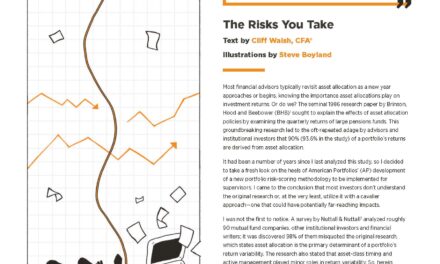
Retirement Confidence Grows
While shortcomings in retirement readiness is a consistent theme of much reporting by general and industry media, EBRI’s survey shows that many Americans are surprisingly hopeful about their own preparation for retirement.
To view the full article please register below:
Retirement Confidence Grows
For the last 29 years, the Employee Benefits Research Institute (EBRI) has conducted its annual Retirement Confidence Survey,1 the most recent of which was published in April 2019. While shortcomings in retirement readiness is a consistent theme of much reporting by general and industry media, EBRI’s survey shows that many Americans are surprisingly hopeful about their own preparation for retirement.
Retirement Confidence Survey Highlights
- Sixty-seven percent of surveyed workers express confidence in their ability to live comfortably in retirement.
- The share of workers who feel “very confident” rose significantly, from 17 percent in 2018 to 23 percent in 2019.
- Almost 60 percent of workers are confident that they will have sufficient savings to meet medical expenses, while over half (52 percent) express confidence in meeting long-term care costs.
- Though confidence is high, only 42 percent have actually calculated how much money they will need to fund a comfortable retirement; one in three respondents feel that they will need at least $1 million.
- Confidence among retirees is even higher, with eight in 10 retirees (82 percent) believing they will have sufficient funds to live comfortably in retirement.
- All is not rosy though, with six in 10 workers indicating that their level of debt is a problem—19 percent call it a major problem.
- Seven out of 10 workers say that their non-mortgage debt adversely impacts their ability to save for retirement—over half indicate that it also affects their ability to pay bills or participate in employee benefits.
- For many workers (45 percent), they are unable to save for retirement and other financial goals at the same time.
- Income stability in retirement is the highest financial priority for 74 percent of workers and 65 percent of retirees.
- Thirty percent of workers would consider a combination of investment assets and a guaranteed income product in retirement, while just 21 percent of retirees would consider the combo.
- Eighty percent of workers expect to work for pay during retirement.
An Opportunity for Advisors
While confidence is high, 59 percent of workers say that retirement preparation stresses them out, which may suggest that “stress reduction” is a differentiating message for advisors that may resonate with the public.
Moreover, the market may not be as saturated as research indicates (unless of course an advisor is pursuing the 1 percent), with just 38 percent of workers employing a professional financial advisor to help them prepare for retirement.
Source:
See referenced disclosure (2) at https://blog-dev.americanportfolios.com/disclosures/












